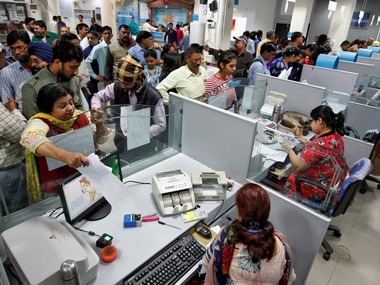Editor’s note: This is the first article of a two-part series on the 50 years of nationalisatation of banks and the situation that prompted the government to take a decision in that direction. For the post-reforms generation, nationalisation of banks was a glimpse of the history of post-Independence banking just like for the earlier generation the history books spoke of the mercantile banks during the British regime. The nationalisation of banks was probably one of the boldest steps taken by the government in 1969 as it involved bringing virtually the entire financial system under the public sector. It was an outcome of the pursuance of the socialist doctrine which advocated public ownership of the ‘commanding heights’. What started off initially as public sector enterprises in the manufacturing sector was expanded to include banks which were the facilitator of finance for growth. Bank nationalisation came in two phases. The first was in 1969 when 14 banks were brought under the umbrella and the criteria were all banks with deposits of above Rs 50 crore. This was extended later to 20 banks in 1980. Besides these nationalised banks, there was the State Bank of India (SBI) group which included SBI and the associate banks. More recently, there has been a merger of SBI with the associate banks. Today, they can all be called public sector banks as the difference between the nationalised banks and SBI group was more technical in nature. [caption id=“attachment_4416681” align=“alignleft” width=“380”] Representational image. Reuters.[/caption] What was the motivation for nationalisation of banks if one moves away from the political overtones that could have played its role? First, as finance was the means to bring about growth, it was felt that this important segment had to be under the purview of the government which was also running the Five Year Plan in parallel for achieving certain socialist goals relating to growth and development. Second, it was widely believed that private banks had an interest in financing only related parties and were not working for social good. Third, there was a feeling that these banks worked as monopolies and controlled the flow of credit. Hence, just like how the Monopolistic and Restrictive Trade Practice (MRTP) was used to curb the undue growth of private enterprises, nationalisation was to eradicate the same and make it more egalitarian. Fourth, there were stark regional disparities in terms of uneven growth which had to be addressed. This was done even in the industrial sphere too where concessions were given for setting up enterprises in backward areas. As an extension bank nationalisation would ensure the spread of banking to all states and regions and bring about balanced economic development. Fifth, several sectors tended to get ignored in the existent system and by nationalisation, the government would be able to ensure that credit flowed to high priority areas like agriculture, small industry, exports, special castes etc. Sixth, by expanding on bank branch network across the country, the system would also generate jobs as more manpower would be required. Hence, there would be an impetus to job creation. Looking back today, it would be hard to counter any of these arguments. First, these objectives still remain etched in our policies and hence cannot be discontinued. Second, as standalone objectives, there can be no quarrel with any of these stated goals. Have there been any gains on account of nationalisation? The answer is yes because the spread of the banking system across the country and to all corners has been driven by this overall objective. The public sector bank (PSB) system is still dominant and accounts for tw0-third of the total deposits and credit in the system. Several programmes of the government have been driven by the PSBs by virtue of their ownership pattern. For instance, the Jan Dhan programme of the government which aims at giving a basic bank account to all has been engineered and fulfilled by the PSBs as private banks do not find it attractive enough. But the entire concept of having programmes implemented through a combination of JAM—Jan Dhan account, Aadhaar card and mobile phone—has been made possible by the PSBs. Therefore, there has been a lot of good which has come from the concept of public ownership of banks. On the economic front too, there was a substantial contribution made by these banks to the growth of infrastructure in the country even though it came with a corresponding quantum of ills. One may recollect that the job of infra finance was initially the domain of the domestic financial institutions (DFIs) which had a niche and was driven by IDBI, IFCI and ICICI (private sector). However, post-liberalisation, their models did not seem feasible when they had to borrow from the market as concession finance was cut off. This made them get converted to universal banks as they joined the fold of commercial banks. In the absence of the development of a corporate debt market, these banks also took on the role of suppliers of funds for investment including infrastructure. The PSBs took the lead role post the financial crisis and lent heavily to these segments, which went sour as the system was shocked with various irregularities leading to a pile-up of non-performing assets (NPAs). (The writer is chief economist, CARE Ratings)
The nationalisation of banks was probably one of the boldest steps taken by the government in 1969 as it involved bringing virtually the entire financial system under the public sector.
Advertisement
End of Article
Written by Madan Sabnavis
Madan Sabnavis is Chief Economist at CARE Ratings. see more


)

)
)
)
)
)
)
)
)



